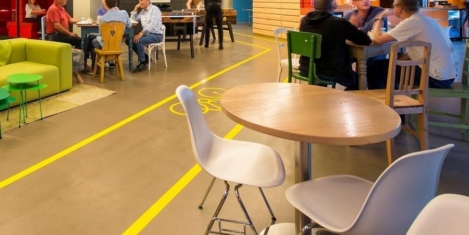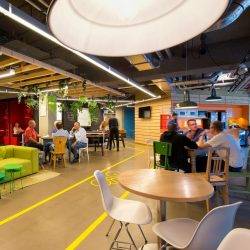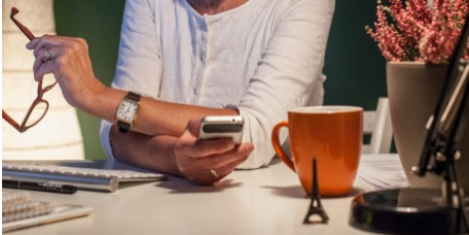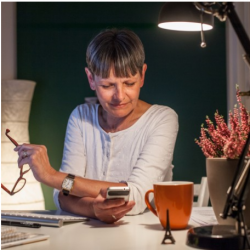October 9, 2017
World Mental Health Day is a day to recognise our duty of care
 The five-year period since August 2012 has seen a 40 percent rise in mental health issues contributing to absenteeism in the workplace. Our data reveals this from examining more than 13 million days of absence across some 180,000 employees. With an estimated 31 million people working in the UK, this percentage rise is the equivalent of 4.34 million Days Lost Per Employee (DLPE) – or more precisely, an additional 1.25 million more days lost due to mental health in 2017 than 2012. And, in June to August this year, it was the most common reason for absenteeism in the UK.
The five-year period since August 2012 has seen a 40 percent rise in mental health issues contributing to absenteeism in the workplace. Our data reveals this from examining more than 13 million days of absence across some 180,000 employees. With an estimated 31 million people working in the UK, this percentage rise is the equivalent of 4.34 million Days Lost Per Employee (DLPE) – or more precisely, an additional 1.25 million more days lost due to mental health in 2017 than 2012. And, in June to August this year, it was the most common reason for absenteeism in the UK.
This tells us two things that you don’t need to be a statistician to deduct. That there has been a steep increase in mental health absenteeism in recent years and that the summer months adds additional stress upon individuals. And this is at a time when we’d hope to be rewarded with some R&R time.
Holidays, and children being home from school, have a clear impact here, and these stresses can more often than not be carried over in to the workplace. But, with children back at school and the holiday season now over, we predict that absenteeism due to mental health issues will drop over the next three months and should account for 0.13 DLPE in November compared with 0.14 in August.
This is all very well but there’s no point in delivering this data if it’s not used in a positive way. We encourage employers to take a look at these trends and recognise who could be affected and where this may impact their business. And in doing so, implement policies accordingly to support those that are living with, or could be susceptible to, mental health issues.
Organisations should ensure their stress management policies are up-to-date, that staff are encouraged and comfortable raising stress related anxieties and concerns and line managers have sufficient training. By doing so, employers will see the benefit to their workforce in both health and productivity while making significant healthcare cost savings, too. There is a raft of information out there to help with this and HR and OH professionals are skilled at recognising signs and trends and helping those that require assistance. Every year World Mental Health Day recognises this awful illness and it deserves close attention. Because as corporate entities we don’t just have a commitment to the bottom line, we have a very serious obligation and duty of care to the wellbeing of our employees.
______________________________________
 David Hope is CEO of FirstCare
David Hope is CEO of FirstCare


















 Work is the biggest barrier to taking regular exercise a new survey suggests, with 20 percent of people citing being too busy with work as the reason why they are not more physically active. The research, which is published by not-for-profit health body ukactive to mark today’s National Fitness Day 2017 also reveals that only 1 in 10 adults (12 percent) know NHS recommended physical activity guidelines and well over half of Brits spend at least six hours each day sitting down. In addition to shunning exercise, more than 64 percent of adults spend at least six hours each day sitting, be it at work, in front of the TV, commuting or on social media. The average UK adult also spends more than twice as much time sitting on the toilet as they do exercising, with the study of 2,004 British adults by ComRes reveals that British adults say they are on the loo for an average of 3 hours and 9 minutes each week, compared to just 1 hour and 30 minutes spent doing moderate exercise such as fast walking or riding a bike.
Work is the biggest barrier to taking regular exercise a new survey suggests, with 20 percent of people citing being too busy with work as the reason why they are not more physically active. The research, which is published by not-for-profit health body ukactive to mark today’s National Fitness Day 2017 also reveals that only 1 in 10 adults (12 percent) know NHS recommended physical activity guidelines and well over half of Brits spend at least six hours each day sitting down. In addition to shunning exercise, more than 64 percent of adults spend at least six hours each day sitting, be it at work, in front of the TV, commuting or on social media. The average UK adult also spends more than twice as much time sitting on the toilet as they do exercising, with the study of 2,004 British adults by ComRes reveals that British adults say they are on the loo for an average of 3 hours and 9 minutes each week, compared to just 1 hour and 30 minutes spent doing moderate exercise such as fast walking or riding a bike.


 UK workers are still uncomfortable about having honest conversations at work, with nearly two thirds (61 percent) feel they keep an aspect of their lives hidden in the workplace. The research from Inclusive Employers found family difficulties (46 percent) was the most likely hidden issue at work, followed by mental health (31 percent). One in five also admitted they would hide their sexual orientation while at work. It also found a generational divide, with 67 percent of employees aged between 18 -24 years old keeping something secret compared to 55 percent of those over aged 55 years or over. The data, released to mark National Inclusion Week 2017, found this lack of openness can have negative impacts on workers and employers, with over a quarter of workers (26 percent) admitting they would feel less connected to their workplace if they hid an aspect of themselves and 18 percent saying their performance would suffer.
UK workers are still uncomfortable about having honest conversations at work, with nearly two thirds (61 percent) feel they keep an aspect of their lives hidden in the workplace. The research from Inclusive Employers found family difficulties (46 percent) was the most likely hidden issue at work, followed by mental health (31 percent). One in five also admitted they would hide their sexual orientation while at work. It also found a generational divide, with 67 percent of employees aged between 18 -24 years old keeping something secret compared to 55 percent of those over aged 55 years or over. The data, released to mark National Inclusion Week 2017, found this lack of openness can have negative impacts on workers and employers, with over a quarter of workers (26 percent) admitting they would feel less connected to their workplace if they hid an aspect of themselves and 18 percent saying their performance would suffer.















October 2, 2017
Time to start a new culture to tackle stigma on mental wellbeing issues in the workplace
by Kate Cooper • Comment, Wellbeing
More →